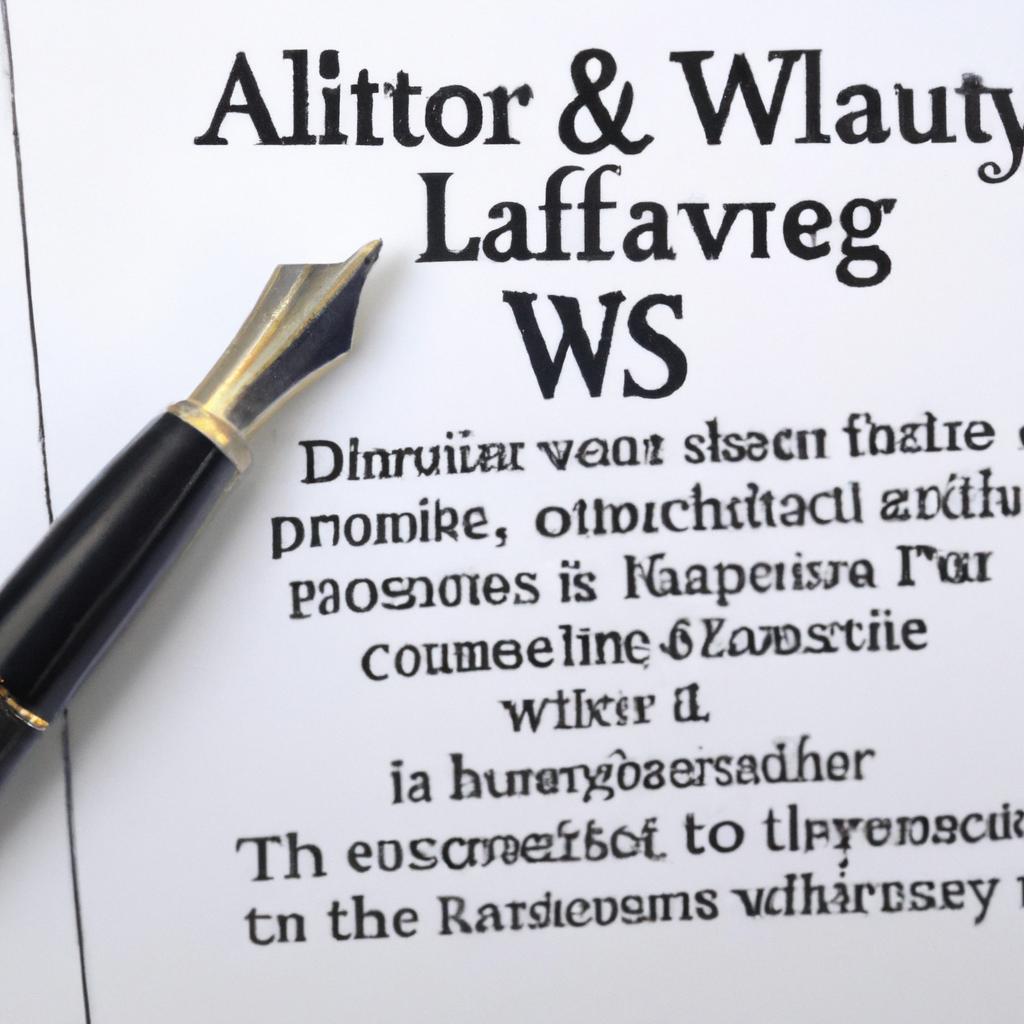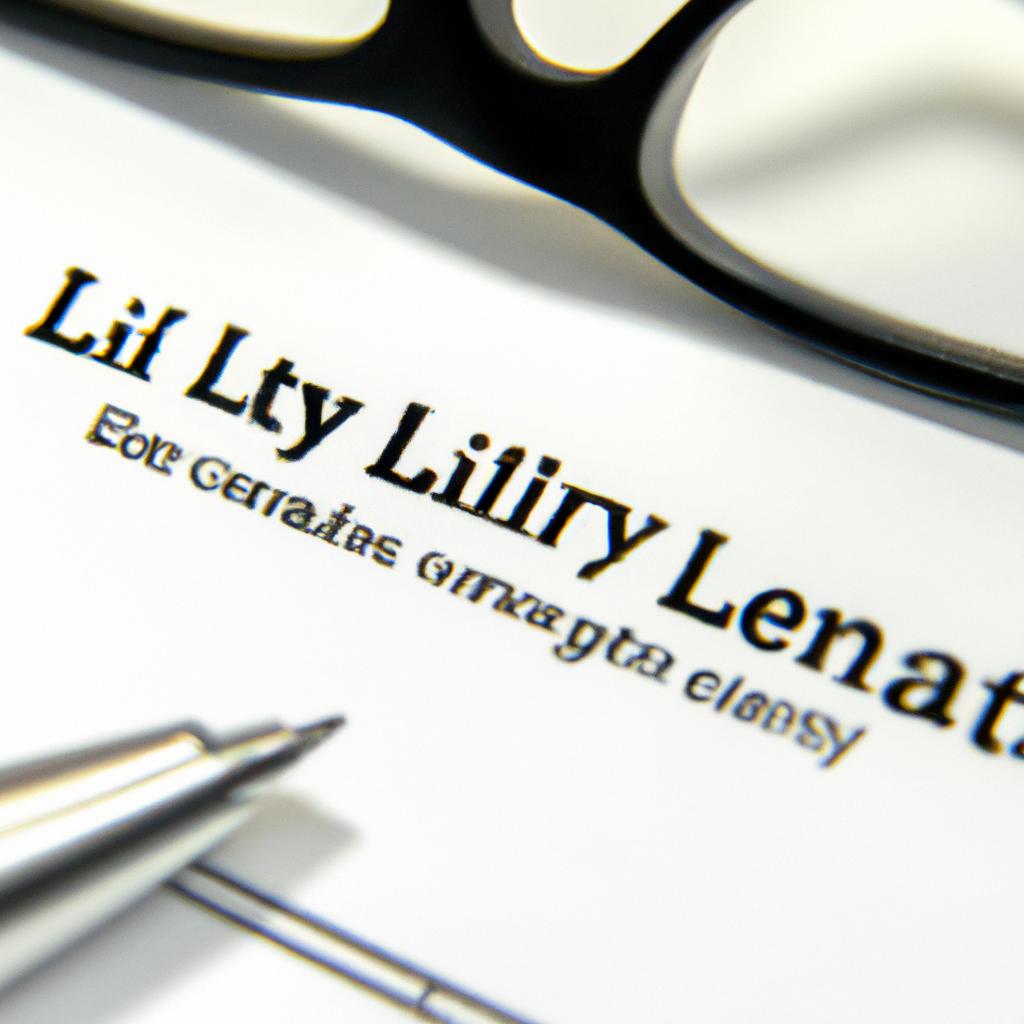In the intricate and often convoluted realm of estate planning, two crucial legal documents stand as pillars of certainty amid the unpredictability of life’s twists and turns: the living will and durable power of attorney. As esteemed members of the legal profession at Morgan Legal Group, nestled in the vibrant bustle of New York City, we understand the importance of these instruments in safeguarding our clients’ wishes and best interests. Join us as we delve into the intricate nuances of these invaluable tools, shedding light on their significance and practical applications in the realm of Wills and trusts.
Understanding the Purpose of a Living Will
When it comes to planning for the future, and durable power of attorney is crucial. A living will, also known as an advance directive, is a legal document that outlines an individual’s wishes regarding medical treatment in the event they are unable to communicate them themselves. This document can specify preferences for life-sustaining treatments, such as CPR, ventilators, and feeding tubes, giving individuals control over their healthcare decisions even if they are incapacitated.
A durable power of attorney, on the other hand, is a legal document that designates a trusted individual to make financial and healthcare decisions on behalf of the individual if they become unable to do so. This appointed person, known as the agent or attorney-in-fact, is responsible for carrying out the individual’s wishes outlined in their living will. By creating both a living will and durable power of attorney, individuals can ensure that their preferences are followed and that their affairs are managed according to their wishes.

Significance of Designating a Durable Power of Attorney
When it comes to estate planning, designating a durable power of attorney is a crucial step in ensuring that your affairs are handled according to your wishes in the event that you become incapacitated. A durable power of attorney gives someone you trust the authority to make financial and legal decisions on your behalf when you are unable to do so. This can provide peace of mind knowing that your affairs are being managed by someone you have chosen and trust.
A durable power of attorney is different from a standard power of attorney because it remains in effect even if you become incapacitated. This means that your designated agent can continue to act on your behalf without the need for court intervention. By designating a durable power of attorney, you can avoid the costly and time-consuming process of guardianship proceedings, allowing for a smoother transition of decision-making authority when needed. It is an essential tool in any comprehensive estate plan.

Key Differences Between a Living Will and Durable Power of Attorney
When it comes to planning for the future, understanding the differences between a living will and durable power of attorney is essential. A living will is a legal document that outlines your wishes regarding medical treatment in the event that you are unable to communicate. It allows you to specify what medical treatments you do or do not want to receive if you are incapacitated. On the other hand, a durable power of attorney is a legal document that designates someone to make financial or healthcare decisions on your behalf if you become incapacitated.
One of the is the scope of authority they provide. A living will only applies to medical decisions, while a durable power of attorney can cover both financial and healthcare decisions. Additionally, a living will only goes into effect when you are unable to communicate your wishes, whereas a durable power of attorney can be effective immediately or upon a specified event, such as incapacity.

Ensuring Clarity and Legal Validity in End-of-Life Planning Documents
Living wills and durable powers of attorney are crucial documents in end-of-life planning as they help ensure clarity and legal validity in decision-making processes. A living will, also known as an advance directive, allows individuals to dictate their healthcare wishes in case they become incapacitated and unable to communicate. This document outlines the medical treatments they do or do not want to receive, ensuring that their preferences are known and respected.
On the other hand, a durable power of attorney grants a trusted individual, known as the agent or attorney-in-fact, the authority to make legal and financial decisions on behalf of the individual creating the document. This is especially important in situations where the individual becomes incapacitated and cannot manage their affairs. By appointing a durable power of attorney, individuals can ensure that their financial matters are handled according to their wishes, providing peace of mind to themselves and their loved ones. It is essential to carefully consider who to appoint as the agent, as they will have significant responsibilities in managing important aspects of the individual’s life.
| Living Will | Durable Power of Attorney |
|---|---|
| Documents healthcare wishes | Authorizes an agent to make legal and financial decisions |
| Applicable in medical situations | Used for managing financial matters |
Q&A
Q: What is a living will and durable power of attorney?
A: A living will is a legal document that outlines a person’s wishes regarding medical treatment in the event they become incapacitated. A durable power of attorney is a legal document that appoints someone to make medical decisions on behalf of the person if they are unable to do so themselves.
Q: Why are these documents important?
A: These documents are important because they allow individuals to have control over their medical care and ensure their wishes are upheld even if they are unable to communicate them.
Q: Who should have a living will and durable power of attorney?
A: It is recommended that all adults have a living will and durable power of attorney, especially those with specific medical preferences or concerns.
Q: How do I create a living will and durable power of attorney?
A: To create a living will and durable power of attorney, you should consult with a lawyer to ensure the documents are legally valid and reflect your wishes accurately.
Q: Can I change or update my living will and durable power of attorney?
A: Yes, you can change or update your living will and durable power of attorney at any time by consulting with a lawyer and completing the necessary paperwork.
To Conclude
In conclusion, understanding the importance of a living will and durable power of attorney is crucial in ensuring your wishes are respected and your affairs are properly managed in the event of incapacity. These legal documents provide guidance and protection for both you and your loved ones, serving as important tools in planning for the future. By taking the time to create these documents, you can have peace of mind knowing that your wishes will be honored and your affairs will be in capable hands. Don’t wait until it’s too late – take charge of your future today.
 What is a Living Will and Durable Power of Attorney: Everything You Need to Know
What is a Living Will and Durable Power of Attorney: Everything You Need to Know
As we age, it’s important to have the proper legal documents in place to ensure our wishes and best interests are protected. Two important documents that serve this purpose are a living will and durable power of attorney. These documents are often confused or used interchangeably, but they serve different purposes and play crucial roles in healthcare and financial decision-making. In this article, we’ll dive into what a living will and durable power of attorney are, their differences, and why they are important for everyone to have.
Living Will: An Overview
A living will is a legal document that outlines your wishes for medical treatment in the event that you are unable to make decisions for yourself. This could be due to a serious illness, accident, or incapacity. The living will specifies what types of medical treatments and procedures you would like to receive or refuse, including life-sustaining measures. It also designates a trusted person, typically referred to as a healthcare proxy or agent, to make medical decisions on your behalf.
A living will only goes into effect if you are unable to communicate your wishes, and your healthcare provider determines that you are unable to make decisions for yourself. It is different from a traditional will, which outlines your wishes for property and assets after your death. A living will is also not a power of attorney, although the two documents are often paired together.
Durable Power of Attorney: An Overview
A durable power of attorney (DPOA) is another legal document that designates a trusted person, referred to as an attorney-in-fact or agent, to make financial decisions on your behalf. This includes the ability to buy or sell assets, manage property, pay bills, and make other financial transactions. The power of attorney remains valid even if you become incapacitated or unable to make decisions for yourself.
A durable power of attorney is often seen as a precautionary measure in case you are unable to manage your own affairs in the future. It gives the designated agent the power to make important financial decisions that align with your wishes and best interests. It is important to choose someone you trust to act in this role, as they will have significant control over your financial matters.
Difference Between Living Will and Durable Power of Attorney
The key difference between a living will and durable power of attorney is the scope of decision-making. A living will only pertains to medical treatment and only goes into effect if you are unable to communicate your wishes. A durable power of attorney, on the other hand, gives someone the power to make financial decisions on your behalf, regardless of your ability to communicate.
Another important difference is the timing of when these documents come into effect. A living will only goes into effect if you are in a life-threatening or end-of-life situation. A durable power of attorney, however, can be used at any time, even if you are still capable of making your own decisions. Ideally, both documents should be created and executed before they are needed to ensure they are legally valid.
Why You Need a Living Will and Durable Power of Attorney
There are several reasons why everyone should consider having a living will and durable power of attorney in place. These documents can serve as a roadmap for your loved ones and healthcare providers in situations where you are unable to make your own decisions. They also alleviate the burden and stress on your loved ones to make difficult choices on your behalf.
Having a living will and durable power of attorney can also provide peace of mind, knowing that your wishes will be honored and your best interests will be protected. It can also help avoid potential conflicts among family members or loved ones who may have differing opinions on your care and financial matters.
Practical Tips for Creating a Living Will and Durable Power of Attorney
If you have decided that creating a living will and durable power of attorney is the right choice for you, here are a few practical tips to keep in mind:
1. Choose the Right Agents – The people you choose as your healthcare proxy and attorney-in-fact should be trusted individuals who can communicate and make decisions effectively on your behalf.
2. Clearly Communicate your Wishes – When creating your living will and durable power of attorney, be sure to clearly outline your wishes for medical treatment and financial decisions. This can help avoid any confusion or conflicts that may arise.
3. Keep the Documents Updated – It is important to review and update your living will and durable power of attorney regularly. This can ensure that your wishes are up-to-date and continue to align with your current situation and preferences.
In conclusion, a living will and durable power of attorney are essential legal documents that provide protection and peace of mind in difficult and unforeseen situations. By understanding the differences between the two and following practical tips for creating them, you can ensure your wishes and best interests are protected. Consider consulting with an attorney or legal professional to help create these documents and ensure they are valid and in line with your state’s laws and regulations. Don’t wait until it’s too late – take the necessary steps now to secure your future.












